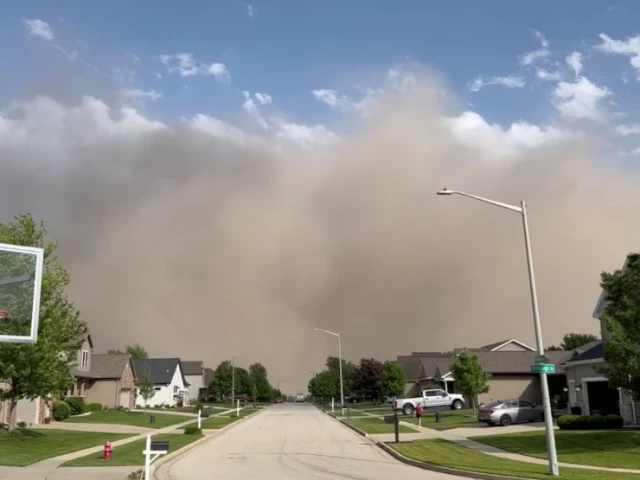Tornadoes kill 21 in Missouri and Kentucky as storms sweep US South
High humidity raises heat exhaustion risk, warns NWS; residents urged to stay hydrated and limit outdoor activity

At least 21 people have been killed after a series of powerful tornadoes tore through the southern US states of Missouri and Kentucky, part of a broader severe weather system impacting much of the Midwest and South.
Kentucky Governor Andy Beshear confirmed on Saturday that 14 people had died in his state as tornadoes struck late on Friday. “This has been a tragic night for many families in Kentucky,” he said in a post on X (formerly Twitter).
In Missouri, authorities reported at least seven fatalities. Search and rescue operations are underway in several communities as emergency responders comb through wreckage in hopes of finding survivors.
St Louis Mayor Cara Spencer confirmed five deaths in the city and said more than 5,000 homes had been damaged. “Our city is in mourning tonight,” she said. “The loss of life and destruction is truly, truly horrific.”
Further south in Scott County, around 130 miles from St Louis, two people were killed and several others injured when a tornado struck residential areas, according to Sheriff Derick Wheetley. “Our first responders acted swiftly, even while the tornado was still active, putting themselves in harm’s way,” he said.
In Kentucky’s Laurel County, a tornado caused severe injuries as it swept through the area late on Friday. Sheriff John Root’s office said the search for survivors was ongoing.
The deadly storms are part of a larger, fast-moving weather system that has affected multiple states. Tornadoes were also reported in Wisconsin, while widespread power outages were reported throughout the Great Lakes region.
In the Chicago area, the National Weather Service issued a dust storm warning on Friday night. A 100-mile-long wall of dust stretching from southwest of Chicago into northern Indiana severely reduced visibility and prompted hazardous travel conditions.
Meanwhile, a separate heatwave is gripping southern parts of the US. Temperatures in Texas soared, with heat advisories issued for San Antonio and Austin where highs ranged between 35°C and 40.5°C (95°F to 105°F).
The National Weather Service warned that humidity would make it feel even hotter, raising the risk of heat exhaustion. “There are concerns of heat exhaustion for people that aren’t taking proper precautions when they’re outdoors,” said meteorologist Jason Runyen, urging residents to stay hydrated and limit time outside.
From deadly tornadoes in the Midwest to searing heat across the South, the United States is facing a dangerous stretch of extreme weather as emergency services continue efforts to aid those affected.
























COMMENTS
Comments are moderated and generally will be posted if they are on-topic and not abusive.
For more information, please see our Comments FAQ